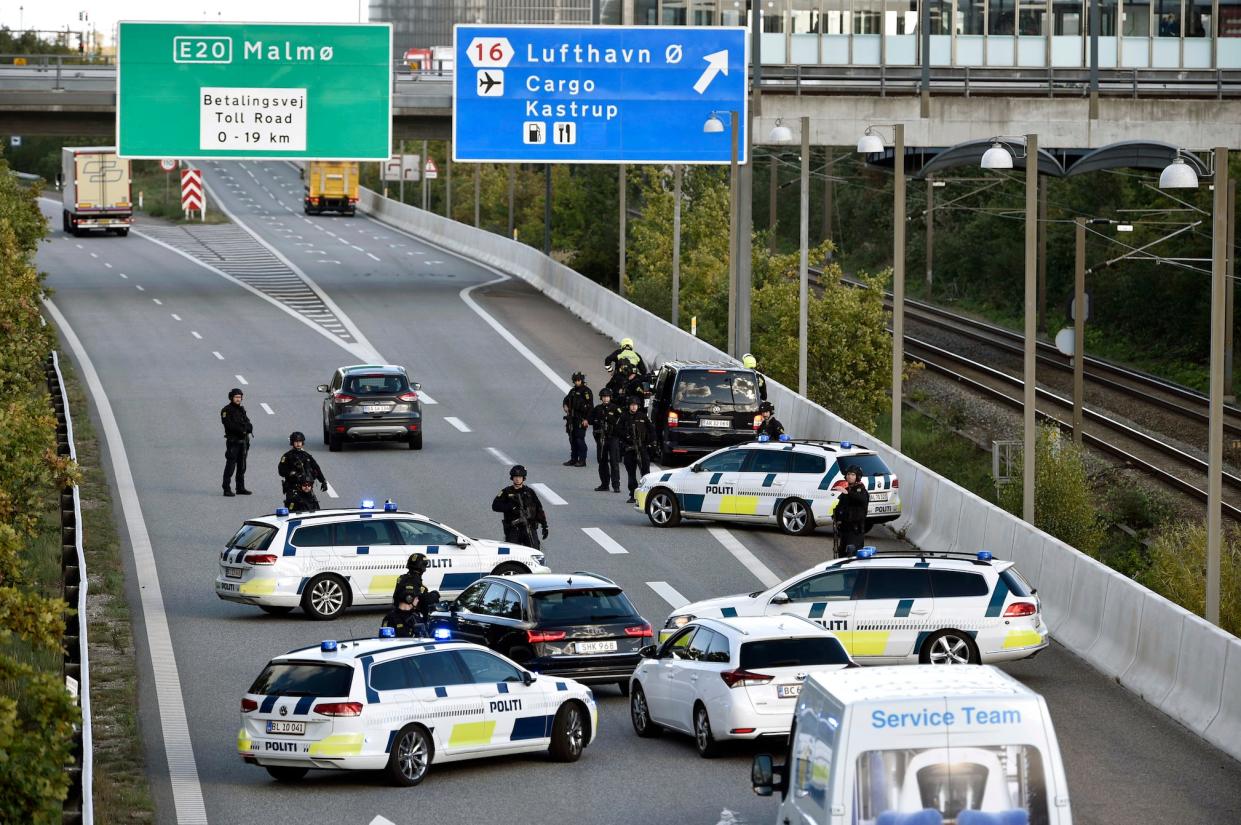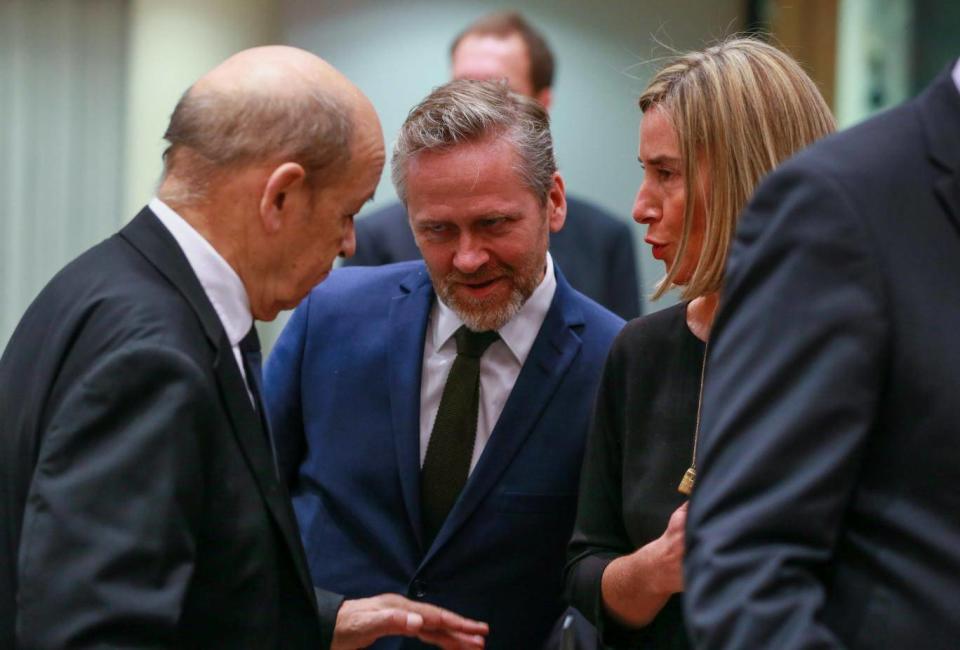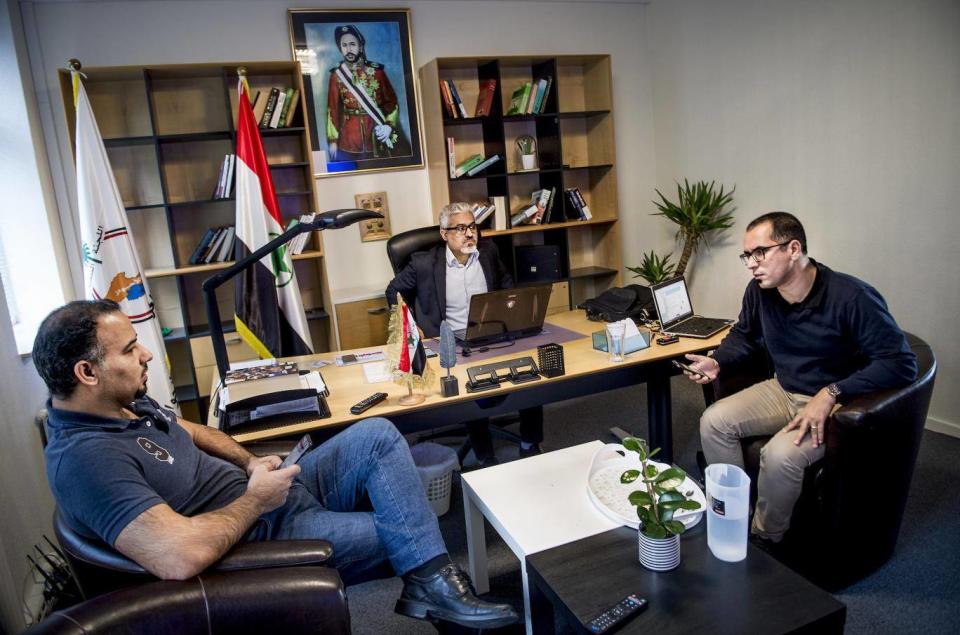Europe refrains from harsh response against Iran over terror plots for fear of emboldening Trump

The Trump administration’s scuppering of the Iran nuclear deal, and Europe’s determination to salvage it, is sparing Tehran from serious punishment in a series of alleged terror and assassination plots on European soil; including one carried out in Denmark in late September, officials have told The Independent.
The alleged Iranian assassination attempt, targeting Arab Iranian activists holed up in a house near Copenhagen, will be raised during meetings of European foreign ministers in Brussels this week. The accusation of clandestine violence on the continent is the third of its kind against Iran in the past year.
European officials are outraged by the allegations, which include the assassination of an Arab-Iranian activist leader in the Netherlands last year, an attempt to bomb a gathering of Iranian exiles and US officials in France, and the plot to target an Iranian activist in Denmark last month.
But although sanctions against Iranian individuals are being considered, European officials say any response will be restrained. Officials don’t want to hand hardline Tehran rivals of president Hassan Rouhani ammunition that could jeopardise his efforts to preserve the Joint Comprehensive Plan of Action (JCPOA), the landmark nuclear deal forged by the EU, US, UK, France, Germany, Russia, China, and Iran in 2015.
Nor do officials want to give Trump, whom they consider a threat to the world order, any satisfaction or encouragement.

“We want to play it smartly so that Trump doesn’t say, ‘See, I told you these weak Europeans will eventually understand the real nature of Iran,’” says a senior European diplomat involved in Iranian matters. “Our policy should be nuanced so that we can send a message to [Iran’s] deep state while keeping the channels open.”
US officials have encouraged Europeans to take action against the Iranians, attempting to use the alleged assassination and bombing plots to drive a wedge between Iran and its JCPOA partners.
“It is very strange to us to see this Iranian regime would spend so much time trying to keep the Europeans on side, at the same time conducting bomb plots and assassination attempts in Europe,” Brian Hook, the US State Department’s Iran policy chief, told reporters on 5 November. “And it’s important for everybody to understand this is the regime that they’re dealing with.”
But Europeans seem to be taking a different path. On Tuesday, Denmark announced that its ambassador to Tehran, Danny Annan, would be returning to his post on Thursday after being recalled to Copenhagen a few weeks ago over the assassination plot.
Officials acknowledge that European action against Iran over the Denmark operation could well be stronger if the Trump administration wasn’t bullying them on their policies towards Tehran, and other matters such as trade and defence spending.
“In this case, there is absolute solidarity with Denmark,” says an EU official. “Denmark itself has however been very clear, and been very public, saying they would like to differentiate that issue from their continued support for the JCPOA.”
In effect, they are shielding Iran from the consequences of its reckless actions just as the Trump administration has protected Saudi Arabia’s leadership following the murder of journalist Jamal Khashoggi.
“The reality of interstate relations is such that their long-term calculus transcend almost any specific source of mistrust,” says Henrik Breitenbauch, director of the Centre for Military Studies at the University of Copenhagen. “Even if the underlying calculus may be wrong, states do act according to their perceived interest.”
“We want to play it smartly so that Trump doesn’t say, ‘See, I told you these weak Europeans will eventually understand the real nature of Iran.”
Senior European diplomat
The alleged operation in Denmark first came to light in the suburban community of Ringsted, a town of 21,000 people 60km southwest of Copenhagen that is the Danish headquarters of a small exiled Arab-Iranian political group called the Arab Struggle Movement for the Liberation of Ahvaz (ASMLA).
On 22 September, a deadly terrorist attack in southwest Iran left dozens dead and injured. Habib Jabor, leader of the Denmark-based branch of the ASMLA, immediately praised the attack via an exile satellite television station, and suggested his group was behind it, before later rescinding the claim.

Even though Isis quickly made a credible claim of responsibility for the attack, Iranian officials were publicly outraged by the ASMLA’s claim and accused Denmark of hosting terrorists. Iranian intelligence services, which operate out of embassies and cultural centres across Western Europe, apparently began upping surveillance on the group.
Unbeknownst to the Iranians, however, the Danish intelligence services had also decided to keep a closer eye on the ASMLA, and quickly detected, then stepped up surveillance. Scandinavian authorities have grown to tolerate Middle East governments spying on exile communities.

But then something triggered a warning light, and the Danish services became convinced on 28 September that an imminent plot to kill Jabor was underway.
“Iranian intelligence has been mostly refugee espionage but no assassination,” says Ali Alfoneh, a Danish-Iranian researcher and security specialist, who has been briefed on the case.
Reports from Israel suggested they provided intelligence to the Danes. Alfoneh described it as an intelligence operation mostly overseen by Scandinavian services. But the tight-lipped Danish spy service has yet to disclose or describe what intelligence led them to believe that an attack was taking place.
“They say they have concrete evidence, but we don’t know what that evidence is,” says an analyst at a Scandinavian foreign ministry.
Security forces responded forcefully. Police shut down all road, rail, and sea routes to Zealand, the island that includes both Ringsted and Copenhagen, effectively cutting off 40 per cent of Danes from the outside world, in search of a black Volvo with Swedish plates that was supposedly carrying a team of assassins.
Even the Oresund Bridge linking Copenhagen to Malmo, featured in the Scandinoir series “The Bridge”, was closed, creating traffic havoc in two countries.
“We’ve never seen anything like this in Denmark,” says Kristian Corfixen, a journalist for the daily Politiken. “They closed all the bridges, the ferries, the southern border to Germany. You had these big queues of cars. Kilometres and kilometres of people waiting.”
On 30 October, Finn Borch Andersen, the head of Denmark’s intelligence service, publicly disclosed the alleged assassination plot and unveiled the extradition and arrest of a 39-year-old Norwegian-Iranian IT consultant who Danish authorities have yet to publicly name.
US Ambassador to the UN Nikki Haley this week incorrectly described the suspect as an “assassin.” His profile suggests he was likely more a patsy than a hardened Iranian intelligence operative. According to his LinkedIn page, he had helped design the website for the Iranian embassy in Oslo. A Danish judge ruled on 8 November that legal proceedings against him would be closed to the press and extended his detention by four weeks.
“He was working in tech companies. He’s a family man,” says Alfoneh. “He must have had some contacts with the Revolutionary Guard. Maybe they offered him money. Maybe he was under some kind of pressure. They asked the man to take a few photos. He was probably not aware of the rest of the operation.”
For Danes, what is being described by local newspapers as “The Iran Affair” has been a wake-up call, bringing the bloody intrigues and feuds of the Middle East to the mostly quiet and industrious Scandinavian archipelago. They’ve likened the case to that of Jamal Khashoggi, the journalist who was assassinated by Saudi operatives in Turkey, or Sergei Skripal, the Russian turncoat agent who survived a nerve gas attack by alleged Kremlin officers.
Several Danish political parties have called for an investigation of the Iranian embassy in Copenhagen, adding to public pressure over the case.
“Denmark has a self image like the Shire from the Hobbit,” says Breitenbauch, of the University of Copenhagen. “We’re not used to the harsh realities of Middle East politics reaching our shores."
Jon Stone in Brussels contributed to this report


